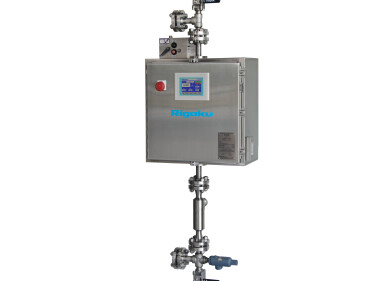Measurement and testing
Oil Giants Join Forces on Pollution
Dec 07 2017
The fight against climate change is well underway, and now eight of the biggest energy groups on the planet have promised to slash methane emissions in an effort to champion natural gas as a climate-friendly fuel.
Together with four other major, ExxonMobil, Royal Dutch Shell, Total and BP have committed to a series of “guiding principles” designed to minimise methane emissions from pipes, wells and other energy infrastructure.
Tackling methane emissions
Over the past few years methane leaks have become a major inferno in the global climate change debate. While natural gas emits around 50% less carbon dioxide than coal, methane is a principal component. When released into the atmosphere the potent greenhouse gas is around 30 times stronger than carbon dioxide. In lieu of its dirty reputation, energy groups have chosen to tackle the methane emissions problem in a bid to ensure natural gas emerges as a competitive, eco-friendly alternative.
Committing to a cleaner, greener future
The alliance is a milestone move, with some of the world's biggest oil and gas competitors putting aside profits in an effort to spearhead eco-friendly energy sources and production methods. So, what have they signed up for? According to sources, key principles include actively working to reduce methane emissions, improving the accuracy of methane emissions data, increasing transparency and developing rigorous policies and regulations designed to enforce new targets.
The commitment has garnered praise from UN Environment, with Mark Radka, head of energy and climate commenting, “Numerous studies have shown the importance of quickly reducing methane emissions if we’re to meet growing energy demand and multiple environmental goals.”
Transitioning to a "low-carbon future"
The eight companies have issued a joint statement outlining a collective commitment to minimising methane emissions and transitioning to a low-carbon future.
"The commitment was made as part of wider efforts by the global energy industry to ensure that natural gas continues to play a critical role in helping meet future energy. Its role in the transition to a low-carbon future will be influenced by the extent to which methane emissions are reduced."
Spotlighting the latest dry colorimetric detection techniques, 'Nitrogen Oxides Measurements in Hydrocarbon Gases' offers a closer look at how oil and gas companies are working to minimise their environmental footprints. With a low detection limit of 10ppb vol in hydrocarbon matrices, it allows analysts to monitor NOx at very low concentrations.
Digital Edition
PIN 25.6 Buyers' Guide
January 2025
Buyers' Guide Directory - Product Listings by Category - Suppliers Listings (A-Z) Articles Analytical Instrumentation - ASTM D7042: The Quantum Leap in Viscosity Testing Technology -...
View all digital editions
Events
Jan 20 2025 San Diego, CA, USA
Jan 22 2025 Tokyo, Japan
Jan 25 2025 San Diego, CA, USA
SPE Hydraulic Fracturing Technology Conference and Exhibition
Feb 04 2025 The Woodlands, TX, USA
Feb 05 2025 Guangzhou, China



















